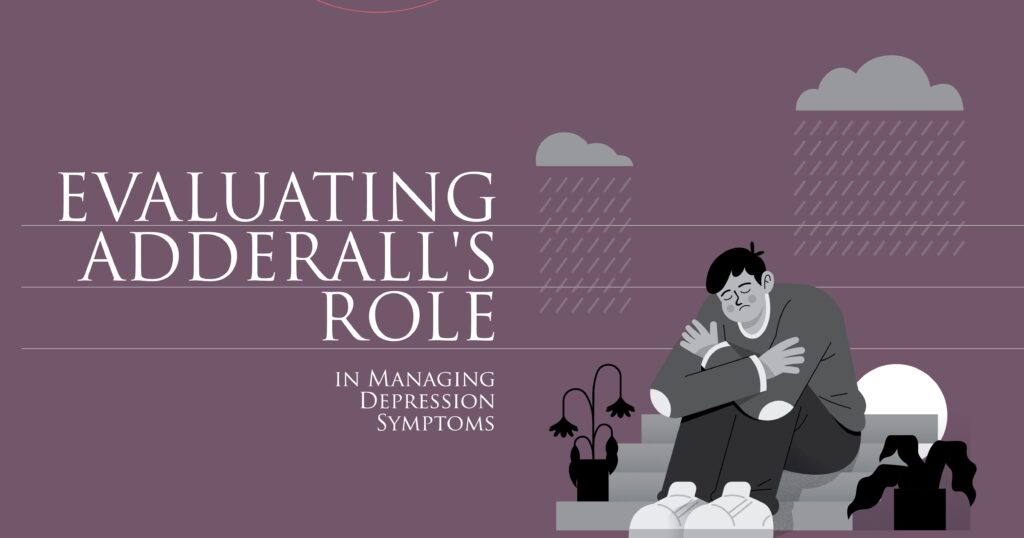Perfectionism—it’s a term we often hear, but what does it really mean? At its core, perfectionism is about setting exceptionally high standards for yourself and being highly critical of any deviation from those standards. It’s a drive that pushes people to strive for excellence, but it can also become a source of intense stress and mental health issues.
Essential Takeaways
- Recognize the Signs: Identify perfectionism early by noting signs like excessive standards and fear of mistakes to seek timely help.
- Adopt Coping Strategies: Use practical methods such as setting realistic goals, practicing self-compassion, and mindfulness to manage stress.
- Seek Professional Help: For severe cases affecting mental health, consulting a professional provides essential tools and strategies for recovery.
Understanding perfectionism is the first step towards managing it effectively. This post will explore how perfectionism impacts mental health, offer strategies to overcome it, and provide practical tips for fostering a healthier mindset.
What Is Perfectionism?
Perfectionism is often viewed as a double-edged sword. On one hand, it can be a motivating force that drives individuals to achieve their best. On the other hand, it can lead to significant stress, anxiety, and dissatisfaction. Perfectionists are known for their relentless pursuit of flawlessness and their tendency to view anything less than perfect as a failure.
San Jose Mental Health
Common Misconceptions About Perfectionism
Many people think of perfectionism as merely a desire for high standards, but it’s more nuanced. It involves a combination of self-criticism, fear of failure, and unrealistic expectations. Perfectionism isn’t just about setting high goals; it’s about how you react to not meeting those goals.
San Jose Mental Health
The Mental Health Impact of Perfectionism
Emotional Toll
Perfectionism can take a severe emotional toll. Individuals with perfectionistic tendencies often experience intense anxiety, depression, and chronic stress. They may constantly worry about their performance and feel that anything less than perfection is unacceptable. This fear of failure can lead to significant emotional distress and a pervasive sense of inadequacy.
For example, a perfectionist might obsess over a minor mistake in a work project, even if the overall outcome is positive. This hyper-focus on errors can overshadow their achievements, leading to a cycle of self-criticism and emotional exhaustion.
Behavioral Effects
The behavioral effects of perfectionism are also significant. Perfectionists often procrastinate because they fear not being able to meet their own impossibly high standards. This procrastination can lead to missed deadlines and increased stress, which only exacerbates their perfectionistic tendencies.
In relationships, perfectionism can cause strain. Perfectionists may have difficulty accepting others’ imperfections and might set unrealistic expectations for their friends and loved ones. This can lead to conflicts and feelings of isolation.
Recognizing Perfectionism
Identifying Perfectionistic Traits
So, how do you know if you’re struggling with perfectionism? Look for these common traits:
- Excessively High Standards: You set unrealistically high goals for yourself and are rarely satisfied with your achievements.
- Fear of Making Mistakes: The thought of making mistakes or failing is paralyzing.
- Self-Criticism: You frequently criticize yourself and focus on your perceived flaws.
A useful self-assessment might involve reflecting on your responses to everyday challenges. Do you find yourself dwelling on small errors or feeling devastated by minor setbacks? These can be indicators of perfectionistic tendencies.
Perfectionism vs. Healthy Striving
It’s important to differentiate between healthy striving and maladaptive perfectionism. Healthy striving involves setting realistic goals and being motivated to achieve them. It’s balanced and flexible. Maladaptive perfectionism, on the other hand, is rigid and often leads to stress and dissatisfaction. Recognizing this difference can help you adopt a more balanced approach to achieving your goals.
Strategies for Overcoming Perfectionism
Challenging Perfectionistic Thoughts
Cognitive Behavioral Therapy (CBT) is an effective tool for managing perfectionism. It involves identifying and challenging the irrational thoughts that fuel perfectionistic behavior. For instance, if you think, “I must never make mistakes,” challenge this by asking yourself, “Is it realistic to expect perfection all the time?”
Setting Realistic Goals
Another key strategy is setting realistic and achievable goals. Instead of aiming for perfection, focus on progress. Set goals that are specific, measurable, achievable, relevant, and time-bound (SMART). This approach helps in creating a clear path to success without the pressure of perfectionism.
Building Self-Compassion
Practicing Self-Kindness
Self-compassion is about treating yourself with the same kindness and understanding you would offer to a friend. Start by acknowledging your efforts and successes, even if they fall short of perfection. Engage in self-care activities and positive self-talk.
Embracing Imperfection
Embracing imperfection involves accepting that mistakes are a natural part of growth and learning. Instead of viewing mistakes as failures, see them as opportunities to learn and improve. This shift in perspective can reduce the anxiety associated with striving for perfection.
Seeking Professional Help
Therapy Options
If perfectionism significantly impacts your mental health, seeking help from a mental health professional can be beneficial. Therapies like CBT and Acceptance and Commitment Therapy (ACT) can provide strategies to manage perfectionistic tendencies. These therapies focus on changing negative thought patterns and accepting imperfections as part of the human experience.
Finding a Therapist
Choosing the right therapist involves finding someone with experience in treating perfectionism and related issues. Look for professionals who specialize in cognitive-behavioral approaches or other relevant therapies. Don’t hesitate to ask questions about their approach and experience to ensure they’re a good fit for you.
Lifestyle Adjustments for Mental Health
Mindfulness Practices
Mindfulness and meditation can be powerful tools in managing perfectionism. They help you stay present and reduce the stress of worrying about future outcomes. Regular mindfulness practice can improve emotional regulation and reduce anxiety.
Stress Management Techniques
Incorporating relaxation techniques like deep breathing exercises, progressive muscle relaxation, and regular physical activity can also help manage stress. These practices can reduce the physiological effects of stress and promote a sense of calm.
Building a Support Network
Connecting with Others
Building a strong support network is crucial for managing perfectionism. Share your experiences with friends, family, or support groups. Talking about your struggles can provide relief and offer new perspectives.
Sharing Experiences
Openness about your challenges can also foster a supportive environment where others feel comfortable sharing their own experiences. This mutual support can be beneficial in reducing feelings of isolation and improving overall well-being.
Conclusion
Embracing Progress
Overcoming perfectionism is a journey, not a destination. Celebrate your progress and recognize that perfection is an unattainable ideal. Focus on the steps you’re taking to improve and the progress you’re making.
Taking Action
Now is the time to start addressing perfectionism in your life. Reflect on your own perfectionistic traits, set realistic goals, and seek support if needed. Remember, the journey towards managing perfectionism is ongoing, and every step you take is a move towards better mental health.
Call to Action
Take the first step today by assessing your perfectionistic tendencies and setting more realistic goals for yourself. Explore mindfulness and relaxation techniques, and consider reaching out for professional support if needed. For more resources and guidance on managing perfectionism, visit our website or contact a mental health professional who can provide personalized support.
FAQs
1. What are the signs of perfectionism?
Signs of perfectionism include setting excessively high standards, intense fear of making mistakes, constant self-criticism, and a tendency to procrastinate. Perfectionists often focus on minor details and are never satisfied with their achievements.
2. How can I start overcoming perfectionism?
Start by recognizing and challenging your perfectionistic thoughts. Set realistic, achievable goals and practice self-compassion. Incorporate mindfulness and relaxation techniques into your daily routine and consider seeking support from a mental health professional if needed.
3. Is perfectionism a mental health disorder?
Perfectionism itself is not classified as a mental health disorder, but it can contribute to various mental health issues such as anxiety, depression, and stress. If perfectionism significantly impacts your daily life, it may be beneficial to seek professional help.
4. How can mindfulness help with perfectionism?
Mindfulness helps by encouraging you to stay present and reduce the stress associated with worrying about future outcomes. It can improve emotional regulation, increase self-awareness, and help you accept imperfections as a natural part of life.
5. When should I seek professional help for perfectionism?
Seek professional help if your perfectionistic tendencies lead to severe anxiety, depression, or interfere significantly with your daily functioning. A mental health professional can provide effective strategies for managing and overcoming perfectionism.








